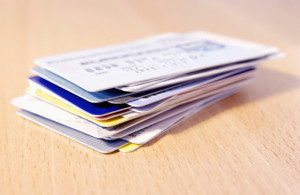
The growth of gift cards raises new and unexpected challenges for regulators and law enforcement.
If you’ve walked through your local supermarket or drugstore lately, you’ve probably seen a stand of gift-cards. Often regarded as the “most profitable” square foot in retail, gift cards are prized by retailers and have enjoyed “flourishing growth in the marketplace.”
However, one kind of prepaid gift card has the same functionality as a basic checking account and can be abused by criminals to easily launder money, according to the Financial Crimes Enforcement Network (FinCEN), an office within the U.S. Department of Treasury. FinCEN has issued new regulations to crack down on the use of gift cards by criminal enterprises and will soon issue more.
Gift cards have become extremely popular with the general public in recent years. Gift cards sometimes offer lower fees to consumers than traditional checking accounts and are attractive to law abiding citizens as well as criminals. According to one academic study, much of their explosive growth can be traced to the “unintended consequences” of regulation of the financial industry.
For individuals who do not have bank accounts, prepaid gift cards function as a low-cost, bare-bones checking account. Users can purchase a prepaid card at a drugstore for a nominal fee, use it as a debit card to purchase goods, add funds via cash or check, and even pay bills electronically from the account.
As a part of broader reforms following the financial crisis, the Durbin Amendment and an associated rule issued by the Federal Reserve in 2011 limited the profitability of credit and debit issuers by setting caps on fees charged to merchants when consumers use a card. These fees are known as interchange fees. The authors of one study argue that these reforms increase the costs borne by consumers for banking services, encouraging them (especially low-income consumers) to drop out of the banking sector entirely.
However, the very same regulation that made traditional banking products more costly for consumers also exempted prepaid gift cards from the same caps on interchange fees (to avoid affecting government aid programs which disburse funds via prepaid cards) while simultaneously preventing large banks from offering such cards to prevent them from “gaming” the exemption. The functionality of prepaid gift cards as bare-bones “checkless” checking accounts issued by banks at retail outlets combined with the ability to charge high fees has led to explosive growth with year-on-year growth of approximately 40%, according to a study by the Federal Reserve.
A report by the Philadelphia Federal Reserve Bank in 2007 details how money launderers could easily use prepaid cards as a way to “clean” dirty money. According to an article by the Associated Press, which details the popularity of gift cards for money laundering, there are a variety of money laundering schemes where prepaid gift cards are used. In perhaps the simplest scenario, criminals could use dirty cash to pay for a prepaid gift card, or to reload one, and then withdraw the funds at an ATM or issue a check via the Bill Pay function. FinCEN has already issued a final rule that addresses the use of prepaid gift cards to launder domestically. The rule requires that sellers of prepaid gift cards implement an anti-money laundering program, report suspicious transactions, and maintain records on individuals purchasing large amounts of gift cards for five years.
Another mechanism of laundering money, according to the Associated Press, would be to use dirty cash to pay for prepaid gift cards which are then trafficked outside of the US. The cards would then be used to withdraw cash from a foreign ATM or exchanged for something of value. For the second scenario, FinCEN has proposed a rule that, if implemented, would designate prepaid gift cards as “monetary instruments” for the purposes of fulfilling reporting requirements when traveling outside the United States. As some comments to the proposed rule have indicated, it may not even be technically feasible to assess in real-time the balance on prepaid gift cards for cardholders to fulfill reporting requirements, much less have those reports verified by government agents at the border. However, as the popularity of pre-paid gift cards continues to grow along with the potential for abuse, FinCEN will likely try to issue rules to combat the use of prepaid gift cards in money laundering schemes.



